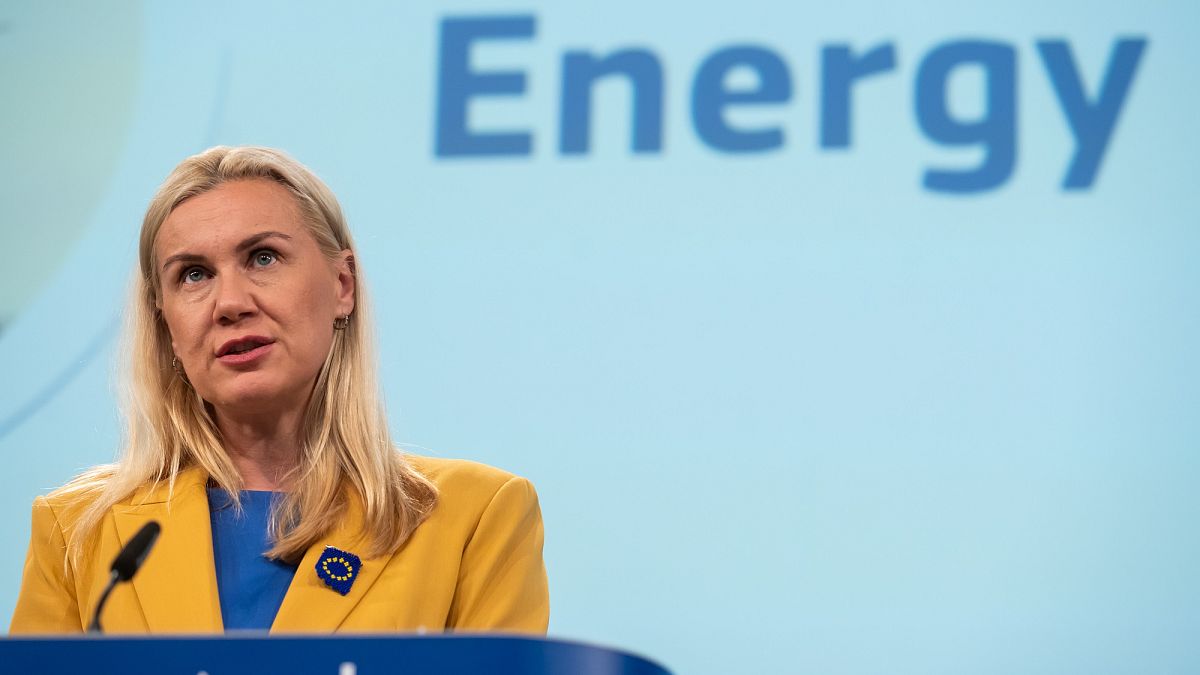The annual State of the EU Energy Union report highlights Europe’s continued reliance on Russia for almost a fifth of its gas imports, despite a significant decrease in supply due to geopolitical conflicts. Energy Commissioner Kadri Simson emphasized the need to phase out Russian gas without compromising energy security. Although consumption of Russian gas has decreased, Russia remains Europe’s second-largest supplier after Norway. Simson stated that Russia has lost leverage over the EU, and alternative supply routes are available. The report also raised concerns about the slow pace of Europe’s energy transition, particularly the need to accelerate renewable energy deployment to meet the EU’s 2030 green energy target.
In response to questions about imposing sanctions on Russian natural gas imports, Simson highlighted that Europe has been preparing for the expiration of the transit agreement between Russia’s Gazprom and Ukraine at the end of the year. The Commissioner stressed the importance of encouraging companies still receiving Russian gas to explore more predictable alternatives. While firms can legally import gas from Russia without sanctions in place, Simson urged governments to utilize tools allowing unilateral bans on Russian LNG imports. She also emphasized the need to ensure that gas no longer coming through Ukraine will not be redirected through other routes.
The State of the EU Energy Union report, first launched in 2015, aims to address energy security concerns arising from Russia’s previous actions to apply political pressure on Ukraine and Europe by restricting gas supplies. The report underscores the Commission’s worries regarding the sluggish pace of Europe’s energy transition. Simson emphasized the need to accelerate the deployment of renewable energy infrastructure to achieve the EU’s 42.5% green energy target by 2030. Despite wind turbines and solar arrays surpassing fossil fuels in the bloc’s electricity generation mix, further progress is required.
France stands out as the only EU member that has not met its 2020 renewable energy target of 20%. The Commission is in dialogue with France regarding this matter, and potential infringement proceedings are being considered. Simson suggested utilizing power purchase agreements and state-backed contracts for difference to hasten the transition, aligning with recommendations from the Draghi report on European competitiveness. Experts urge the Commission and EU member states to prioritize the implementation of energy savings, renewables, and electrification initiatives to advance the energy transition.
Overall, the State of the EU Energy Union report highlights the ongoing reliance on Russian gas imports, the need to accelerate the transition to renewable energy sources, and the importance of ensuring energy security while diversifying supply routes. With the expiration of the transit agreement between Russia and Ukraine approaching, Europe must act swiftly to mitigate potential disruptions in gas supply. The EU Commission’s focus on encouraging companies to explore alternative gas sources and embrace renewable energy solutions underscores the commitment to achieving the region’s energy goals. Addressing challenges such as sluggish renewable energy deployment and incomplete energy targets requires proactive measures and collaborative efforts among EU member states and stakeholders.











